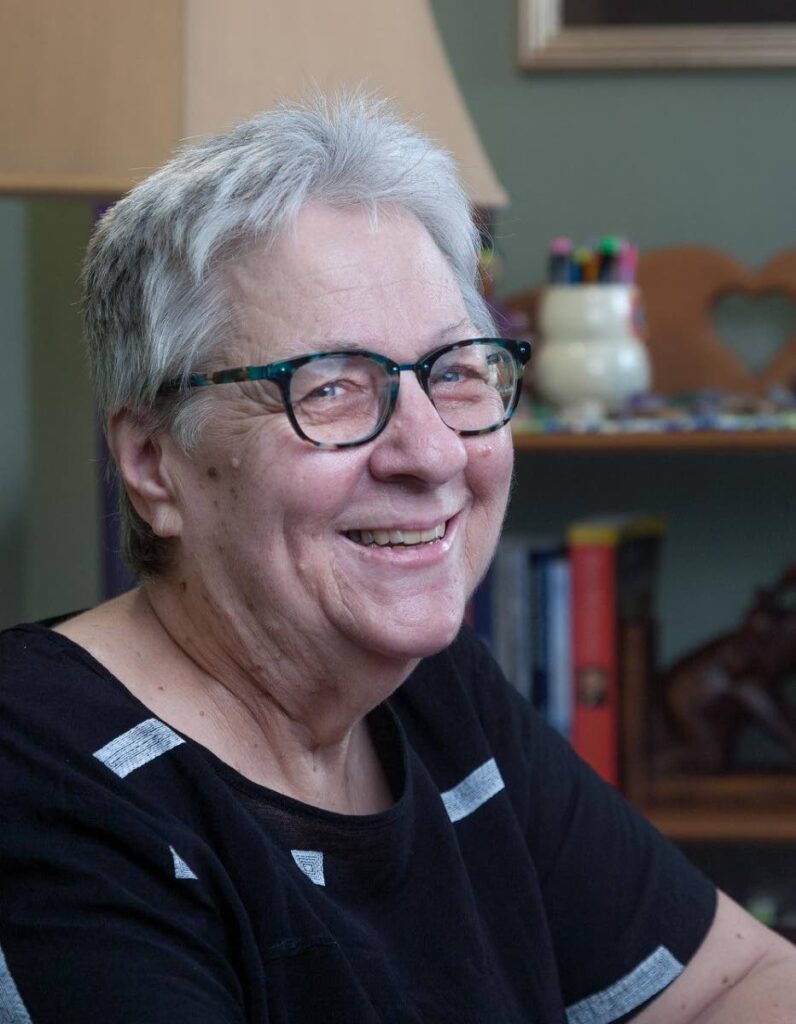Throw away textbooks, teachers

ANY DISCUSSION on the role of education always catches my attention so I read TTUTA’s commentary, “Role of teachers in building sustainable, resilient societies,” with great interest. The column, which appeared in this newspaper last week, spoke about the COP26 conference on climate change and the need for educators to address their roles in dealing with climate change and building sustainable societies.
The column reproduced an article from the past “as a reminder of what is required if the education sector is to do its part, especially if we are to develop a resilient society.”
The article goes on to say, “Within this context, the role of the teacher is not simply one of transmitting knowledge and perpetuating existing cultural norms. Rather, teachers must assume a transformative role in which they act as catalysts for change in helping to create the society that we would like to have.”
What does this mean and exactly how does it work? What plans does TTUTA have for turning out more empathetic students passionate about creating a better world for all of us? The challenge now is to transcend the abstract parameters peppered with educational jargon and present concrete examples of how education should look.
Many of the skills students need should come from their reading across subjects. Students need to read nonfiction books in science, history and English classes to develop comprehension and critical thinking skills. Reading develops empathy, which is the foundation for creating good, effective leaders. Notice that we never mention the word “leaders” when we address the role of education.
Students need to read environmental classics like Rachel Carson’s Silent Spring and modern, inspirational books like I am Malala: How One Girl Stood up for Education and Changed the World by Malala Yousafzai. They should read The Boy Who Harnessed the Wind by William Kamkwamba and Bryan Meale, about a young Malawi man who built a windmill to generate water in his famine-ravaged village.
Many teachers have transcended the syllabus to use my book Wishing for Wings, the story of my first English class in YTC, because it shows the poor and desperate side of Trinidad that many students don’t know, but also represents many of the at-risk students in our schools. Read Judy Raymond's biography Beryl McBurnie to understand that independence must include a vision of how the arts shape and transform culture.
We must inspire students to become empathetic leaders capable of rallying others to the issues we must address. We need debate teams and more speech days tied to relevant, global issues and service learning where students practise community service and learn about this country.
We become more environmentally conscious by creating a curriculum built on watershed education for younger students. Get students out of the classroom to do research on our rivers and their impact on communities.
The TTUTA article called for “equipping teachers with the knowledge and other competencies they will need to help develop (the necessary) attitudes, values and social aspirations…” in students. Teachers don't need more abstract, theoretical knowledge. They need to read and explore their own interests in politics, economics, business, science, history and literature to develop a more creative and more meaningful direction for education.
As teachers, we need to empower students to be more creative and expressive through writing and research skills. That doesn’t just come from navigating the internet to find scholarly articles. It comes from doing original research in our communities. Speak to people in communities devastated by floods every year and come up with a solution to mitigate flooding. Have students do research projects on ways to reduce their own carbon footprint and apply their knowledge to their lives.
The article said, “There must be clear policy directions, adequate levels of investments and a legislative framework that will support the change that is needed.”
I say figure out how to be more creative within the system now. Don’t wait for the system to change for you. I got excellent CXC results in YTC by encouraging teenagers to read and value critical thinking. I threw away the textbooks and challenged students to write and think.
Teachers need to feel free to explore their own individual teaching styles and tap into their own creativity that transcends traditional education and the rigid, anachronistic curricula. They need to address students’ interests and passions and incorporate more real-life experiences, group projects and individual expression into learning. Move from the abstract to the concrete world. Challenge the system. Make your voices heard as teachers and leaders who can create better leaders for tomorrow. Inspire your students. That’s how we tackle sustainability.


Comments
"Throw away textbooks, teachers"